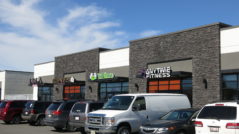Every business owner who intends to rent commercial space in a shopping wants to get the perfect space in the best location with plenty of parking for their customers. When you do find an ideal location, you might be tempted to just sign the lease that the shopping mall owners or management company puts in front of you. Here are a few tips to help you avoid mistakes when you are planning to sign a shopping mall lease in Calgary.
Let your Lawyer Review the Lease First
Don’t get too eager. Put the breaks on and resist the temptation to sign on the dotted line right away. You always want to have your lease reviewed by a lawyer who specializes in real estate. Legal jargon can confound the uninitiated and get them into hot water without them being aware of the all the lease ramifications.
Have your Space Inspected
Many mall operators will try to get mall lease owners to rent a space ‘as is’. The reason they do so is this allows them to avoid the problems and hassles of dealing with existing problems such as electrical problems, mould, and plumbing problems. They don’t have to pay to bring the premises up to code. Who pays to do that then? That’s right, you get to bear the burden. Always have your premises inspected first by a licensed and quality inspector so problems can be identified.
Is the ‘Use’ Portion Flexible?
This refers to the ‘permitted portion’ of what practices your business is allowed to engage in and let’s you to do. Pay close scrutiny of this clause to make sure it isn’t too narrow or restrictive. If you make changes to your products, services you could run afoul of being limited or restricted by the restrictions set out in the lease.
Try for ‘Rent Free’ Period
It takes time to get your business up and running, making alterations, getting the wiring, shelving, bringing in the products and hiring staff. Try and see if you can get 30 or 60 day period rent free. Some mall operators are actually amendable to this practice as they are going to be making revenue of you for some time to come.
Who Pays the Property Taxes?
In many instances, many businesses which lease in a shopping mall are expected to pay a percentage of the utility bills and property taxes in addition to their rent. This can be important to factor into your monthly budget so you might want this clarified and review tax records at City Hall to find out how much the previous owner was paying to get an idea of the costs to you.
Cap your Liability Exposure
Not every business thrives, even with a lot of walk-through traffic you generally find in malls. If your business begins to falter and it appears you might have to go out of business before the lease expires, you do not want be on the hook for long liability exposure to keep paying the lease. Try and limit this as much as possible through negotiation and limit it as much as possible.
Try and get a Non-Compete Clause Included
The last thing you want when you open up your unique business in a mall is to have a competitor open up another business around the corner. It’s hard enough finding customers without having to get into a price war with a nearby competitor. Ask the owner to put in a no-compete clause so you don’t have to worry about having to get into a price war fight.
Photo by Charlie Brewer












